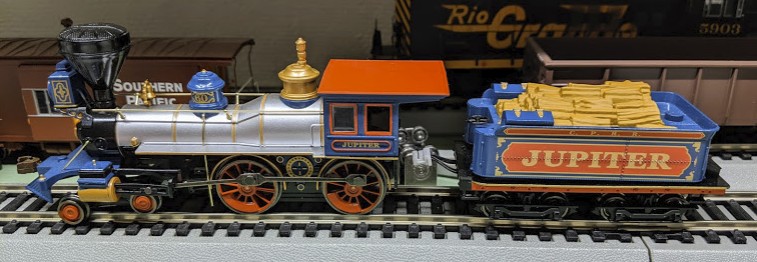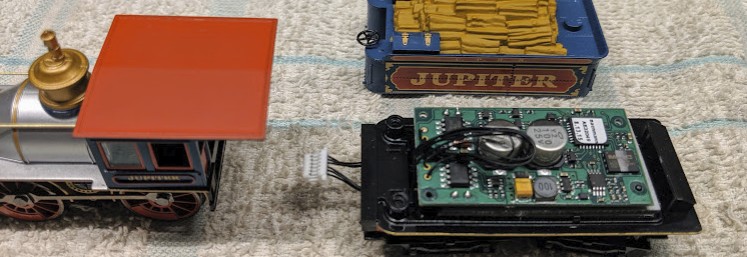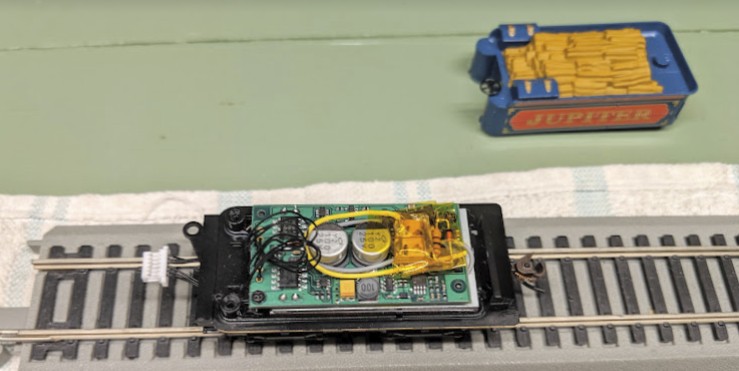Model Train-related Notes Blog -- these are personal notes and musings on the subject of model train control, automation, electronics, or whatever I find interesting. I also have more posts in a blog dedicated to the maintenance of the Randall Museum Model Railroad.
2019-06-03 - Jupiter Steam 4-4-0 Engine
Category TrainJim got this engine for Randall in commemoration of the 150th Anniversary of the Transcontinental Railroad.
My first attempts at doing that video were miserable as the engine would stop constantly at slow speed and I tried a few things to see if I could improve the power pickup.
Power pickup is done both by the 4 driver wheels as well by the tender. The tender has metal brushes on the axles. I tried bending the brushes for better contact but that did not improve things. However a small drop of CRC 2-26 on the metal brushes improved the situation drastically.
Important Tip: If you use CRC 2-26, be careful not to have it go on the wheels/rails as it is a lubricant. That said I have used that to revive very old dusty layouts; it can behave similarly to Wahl in that when scrubbed over old dusty rails it will recondition the rail to conduct and prevent from oxidizing too fast, but it really needs to be scrubbed off otherwise it’s going to gung the wheels, and it will reduce traction. |
In a typical “because I can” scenario, I decided to open it and check the decoder:
The decoder is unsurprisingly located in the tender. Note that to open it, all you need is to remove the two screws at the front of the tender. The coupler does not even need to be removed. It is a dedicated version of a Soundtraxx “Durango” decoder, specific for Bachmann, with a tiny speaker under the tender.
One can see the obvious diode rectifier bridge on the back. That gave me an idea. On the front we can see the two large 100 µF caps and I decided there was enough space to add two more capacitors, and first made sure it would all fit under the hood of the tender. Here is the modification being tested, using the output of the bridge rectifier:
I got my inspiration from an excellent article in MRH Running Extra:
"Stay alive capacitors for N scale", MRH RE December 2018
Note that in total I’m only adding 200 µF. That does not even qualify as a “stay alive”, but it did seem to make an improvement over poor pickup when I tried it.
Finally it was time to assemble it all together:
The last step was running it and filming the video, as seen above.




